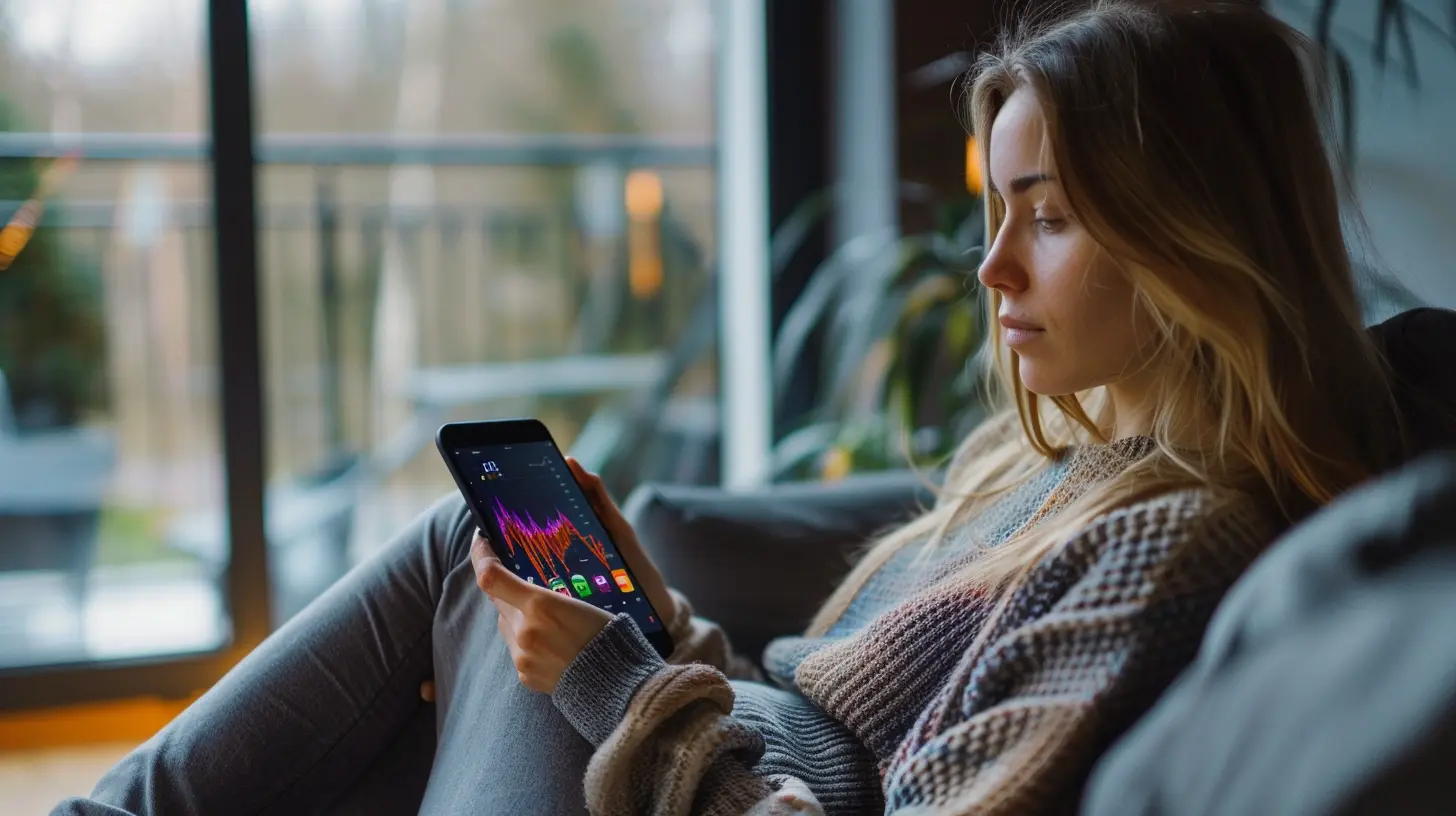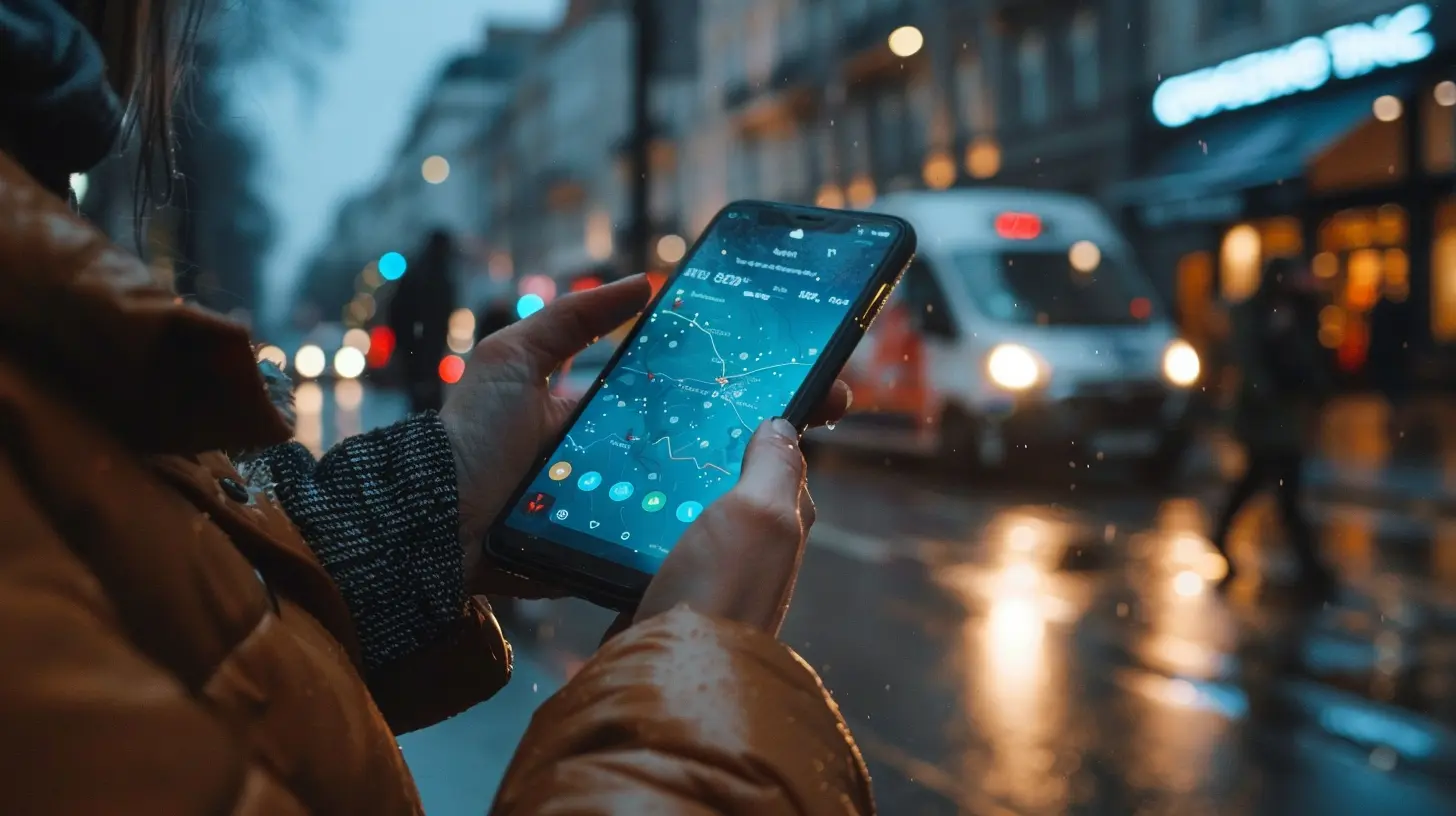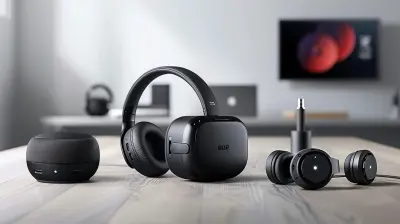How Mobile Devices Are Transforming Personal Health Monitoring
7 June 2025
Let's be honest — we carry our phones with us everywhere. They're our alarm clocks, calendars, cameras, and now, more than ever, our personal health assistants. Whether you're tracking your steps, checking your heart rate, or even monitoring your sleep, mobile devices are redefining how we look after ourselves. But how did we get here, and what does it mean for the future of personal health? Buckle up — we're diving into how mobile tech is reshaping our health from the palm of our hands.
The Rise of Health-Focused Mobile Technology
Mobile devices are no longer just for texting or doom-scrolling through social media. These gadgets have evolved into powerful health tools. Thanks to sensors, apps, and cloud connectivity, smartphones and wearables (yep, smartwatches and fitness bands) are now deeply integrated with health monitoring.You don’t need to visit a clinic for every little concern anymore. Mobile health, often called mHealth, is bringing medical-grade monitoring right to our fingertips. Ever used an app to log your meals or check your blood pressure? That’s mHealth in action.
Why Is Mobile Health Monitoring a Big Deal?
Think about this: Ten years ago, you probably had no idea how many hours you slept or what your daily heart rate looked like. Today? That data is just a tap away. But the benefits go beyond just nerding out on numbers.Here’s why it’s making waves:
- Accessibility: Health monitoring is no longer reserved for doctors or hospitals. Anyone with a smartphone can access basic health insights.
- Real-time Tracking: Instead of waiting for annual check-ups, we keep tabs on our health 24/7.
- Prevention First: These devices help flag irregularities early, nudging users to spot potential issues before they escalate.
Personal health monitoring is shifting from reactive to proactive — and it's a total game changer.
The Core Tech Powering This Revolution
Let’s break down the magic behind mobile health monitoring. We’re not talking about sci-fi tech here—just clever use of existing components.1. Sensors Galore
From accelerometers to gyroscopes, heart rate monitors to SpO2 sensors, mobile devices are packed with tech that tracks our every move (literally). These sensors gather raw health data like motion, heartbeat, temperature, and even blood oxygen saturation.Wearables like Fitbit, Apple Watch, and Garmin use photoplethysmography (PPG) to measure the volume of blood flow and detect heart-related data. It sounds complicated, but it’s basically light bouncing off your skin to track pulse changes. Wild, right?
2. Health Apps
Think Apple Health, Google Fit, Samsung Health — these apps are like your health dashboard. They aggregate info from various sources and give you a snapshot of your physical wellbeing. Plus, specific apps target niche areas like:- Sleep (Sleep Cycle, Pillow)
- Nutrition (MyFitnessPal, Yazio)
- Mental health (Calm, Headspace)
- Fitness (Strava, Nike Run Club)
All of this builds an ecosystem that gives you a holistic (and often eye-opening) view of your health.
3. AI & Data Analytics
This is where things get smart. AI helps interpret data patterns — spotting what’s normal and what’s not. It can suggest better habits or alert you when something’s off. Some devices even predict potential conditions before you feel symptoms.Imagine your watch warning you of an irregular heartbeat before you even sense anything wrong. That’s AI at play, quietly working behind the scenes.
Key Health Metrics You Can Now Track Easily
Let’s look at some specifics. What exactly can your phone or smartwatch track? You’d be surprised:Heart Rate
This one’s a classic. Whether resting or mid-workout, heart rate is a quick indicator of cardiovascular health. Constant tracking helps athletes optimize their performance and helps the rest of us understand stress, fitness, and recovery.Blood Oxygen (SpO2)
Many modern wearables now include SpO2 sensors. Low blood oxygen can signal breathing or heart issues — and during the COVID-19 pandemic, it became a life-saving feature.ECG and Irregular Rhythm Detection
The Apple Watch Series 4 and later can capture ECGs — an electrocardiogram on your wrist! It helps detect atrial fibrillation (AFib), a serious heart rhythm condition.Sleep Patterns
Ever wondered how well you really sleep? Wearables analyze your sleep stages — light, deep, and REM — helping you tweak habits for better rest.Stress Monitoring
Devices like Garmin and Fitbit use heart rate variability (HRV) to assess stress levels. Combined with guided breathing exercises, they help you calm down on the toughest days.Activity Tracking
Steps, calories burned, stairs climbed — you name it. Whether you're training for a marathon or just trying to stretch your legs more often, activity tracking keeps you moving (or at least reminds you when you've been glued to your desk too long).Remote Patient Monitoring (RPM): Healthcare at Home
Let’s talk about one of the most profound impacts mobile health is having: remote patient monitoring.Doctors can now monitor patients with chronic conditions like diabetes, hypertension, or heart disease without constant in-person visits. Devices sync data to the cloud, and healthcare professionals check in on progress — or lack of it — in real-time.
Elderly patients can wear devices that detect falls or unusual patterns and alert caregivers. RPM offers peace of mind and reduces hospital readmissions.
It’s not just cool tech — it's literally saving lives and cutting healthcare costs.
Mobile Devices and Mental Health
Your phone might cause stress sometimes, but believe it or not, it can help reduce it too. Mental health apps are booming, offering guided meditations, breathing exercises, mood tracking, and even therapy sessions.Apps like Headspace or Insight Timer teach mindfulness, while artificial intelligence chatbots provide conversational support for people dealing with anxiety or depression.
Many platforms offer journaling features and cognitive-behavioral therapy (CBT)-based tools. Some even integrate with smartwatches to provide stress alerts or recommend breathing exercises when heart rate spikes.
Gamified Health: Making Wellness Fun
Who says staying healthy has to be boring?Mobile health apps are gamifying wellness — turning exercise, hydration, and even sleep into interactive challenges. Think:
- Competing with friends for daily step counts
- Earning badges for consistent workouts
- Unlocking sleep achievements for hitting REM goals
Gamification keeps users engaged and motivated. It’s like turning your health journey into a role-playing game where you earn rewards for taking care of yourself. Pretty neat, right?
Privacy and Security: The Not-So-Fun Part
All this health data sounds awesome — but where does it go, and who can see it?That’s the elephant in the room. When we’re sharing sensitive information like heart rates, stress levels, and sleep cycles, privacy matters more than ever.
The good news? Most platforms encrypt your data and require permissions to share it. The bad news? Not all apps are created equal, and data breaches do happen.
So, what can you do?
- Use reputable apps from trusted developers
- Enable two-factor authentication where possible
- Read the privacy policy (yes, actually read it)
- Limit unnecessary data access
Your data is powerful — use it wisely, and keep it secure.
The Future of Mobile Health Monitoring
We’re just scratching the surface of what’s possible.Picture this: Your phone not only monitors your vitals but also integrates with your doctor’s office seamlessly. If something's off, your physician is alerted — all without you lifting a finger.
Expect more personalized insights, deeper AI integration, and better predictive health tools. Soon, we might have devices that detect illness days before symptoms appear. Sci-fi? Not for long.
And with 5G and edge computing ramping up, real-time health monitoring will be faster and more accurate than ever.
Final Thoughts
Mobile devices have grown from simple communication tools into personal health companions. They track, analyze, and even coach you into better health — all from your wrist or pocket.Sure, they’re not a replacement for good ol’ doctor visits, but they’re a powerful supplement. When used right, mobile health tools keep you informed, motivated, and one step ahead of potential health issues.
So, next time your smartwatch buzzes to remind you to breathe, drink water, or take a walk — don’t roll your eyes. It might just be the future of healthcare giving you a nudge.
all images in this post were generated using AI tools
Category:
Mobile TechnologyAuthor:

Ugo Coleman
Discussion
rate this article
2 comments
Elara Morgan
Great insights! Mobile devices are indeed revolutionizing personal health monitoring by making data more accessible and encouraging proactive health management. Excited to see future innovations in this space that enhance user engagement and health outcomes!
June 18, 2025 at 4:24 AM

Ugo Coleman
Thank you for your kind words! I share your excitement about the future of mobile health innovations and their potential to enhance user engagement and outcomes.
Dax Morrow
Mobile devices are revolutionizing personal health monitoring by providing real-time data and fostering proactive health management. With intuitive apps and wearable tech, users gain unprecedented insights into their well-being, empowering them to make informed lifestyle choices. This shift not only enhances individual health but also transforms public health strategies.
June 8, 2025 at 10:36 AM

Ugo Coleman
Thank you for your insightful comment! It's exciting to see how mobile technology is empowering individuals to take charge of their health and influencing broader public health initiatives.


